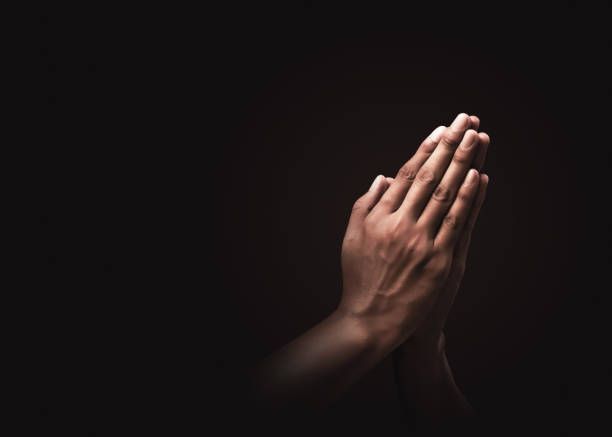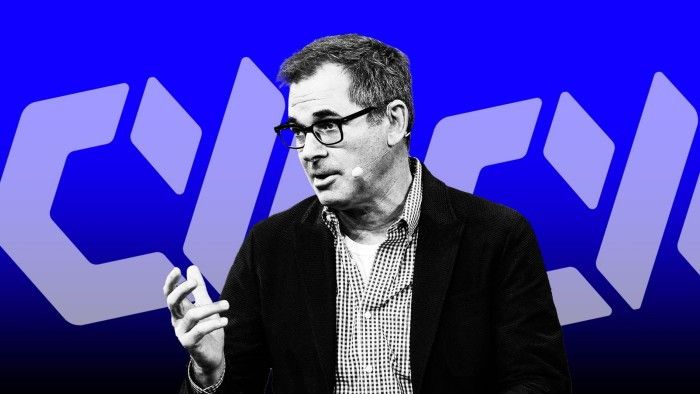Nigeria Ranks Third Among Countries That Pray the Most

Prayer has existed as long as humanity itself. From whispered chants in ancient temples to kneeling in mosques, lifting hands in churches, or quietly meditating under a tree, prayer has always been humanity’s way of connecting with something greater. It is a ritual of hope, gratitude, intercession, and surrender.
Across centuries and civilizations, prayer has provided comfort in times of war, guidance in times of uncertainty, and unity in times of division.
Today, prayer continues to play a central role in the lives of billions. A new study from the Pew Research Center, visualized by Visual Capitalist, has revealed the countries where people pray the most. And Nigeria, Africa’s most populous country, stands proudly among the leaders, ranking 4th in the world.
Photo Credit: Visual Capitalist
With 91.5 million Nigerians praying daily (84% of its population), the report does not just highlight statistics; it tells a story about culture, faith, and resilience.
Nigeria’s Place in the Global Prayer Map
Globally, the top-ranking countries where people pray daily reveal fascinating regional and cultural dynamics. At the very top of the list is Indonesia, where 95% of the population, 269 million people, pray daily, making it the undisputed leader. Following closely are Kenya (84%) and Nigeria (84%), and then Malaysia (80%).
Here is a closer look at the Top 10:
Indonesia – 269 million (95%)
Kenya – 47.4 million (84%)
Nigeria – 91.5 million (84%)
Malaysia – 28.5 million (80%)
Philippines – 91.5 million (79%)
Brazil – 130.2 million (75%)
Bangladesh – 25.1 million (75%)
Ghana – 15.8 million (73%)
Sri Lanka – 15.7 million (72%)
Colombia – 37.6 million (71%)
Nigeria’s high ranking underscores the country’s unique blend of Christianity and Islam, both of which emphasize daily prayer as a foundation of faith.
Nigeria: A Nation Built on Prayer
Nigeria is often called the Giant of Africa, not just for its population of over 200 million but also for its spiritual vibrancy. To understand why prayer is so central in Nigerian society, we must look at history, culture, and daily life.
Religious Demographics
Nigeria’s population is almost evenly split between Christians (about 46%) and Muslims (about 53%), with a small fraction practicing indigenous African religions.
For Muslims, the five daily salat are obligatory. For Christians, prayer is equally emphasized through personal devotion, morning altars, church activities, and group intercessions.
The Role of Family and Community
Prayer begins at home. Many Nigerian households start the day with morning devotion, where families sing hymns, read scripture, and pray together before heading to work or school. Communities reinforce this habit with evening vigils, Friday mosque prayers, and Sunday church services.
Prayer as a Survival Strategy
Nigeria faces significant challenges—economic instability, unemployment, corruption, and insecurity. For many, prayer is a form of resilience. It is both a coping mechanism and a hopeful belief that divine intervention can change circumstances.
Prayer in Public Life
In Nigeria, prayer is not confined to private life. Political campaigns, government functions, and public events often begin with opening prayers—usually from both Christian and Muslim leaders. Even football matches and weddings are wrapped in layers of prayer.
Social Insight
Navigate the Rhythms of African Communities
Bold Conversations. Real Impact. True Narratives.
The Global Divide: South Prays, North Secularizes
The study highlights a sharp contrast: while Global South nations like Nigeria, Kenya, Indonesia, and the Philippines remain deeply prayerful, much of the Global North reports low daily prayer rates.
For instance:
Sweden (8%), Germany (16%), France (18%), and UK (21%) show how secularism has shifted daily habits.
Even in the United States, once considered the global centre of Protestant religiosity, only 44% pray daily, a significant decline compared to Nigeria’s 84%.
This divide reflects broader cultural dynamics. In the Global South, religion is often intertwined with identity, community, and survival. In contrast, secularism, individualism, and scientific rationalism dominate the Global North.
Why Nigerians Pray More: The Four Dimensions
To grasp Nigeria’s high ranking, we must understand the factors that fuel this religious intensity.
Historical Legacy of Faith
Nigeria inherited strong religious traditions through centuries of Islamic scholarship in the North (dating back to the 11th century) and Christian missionary activity in the South (since the 19th century). Both emphasized daily prayer as central to spiritual discipline.
Economic Realities
With 40% of the population living below the poverty line, many Nigerians lean on prayer as a source of hope. Prayer becomes not just spiritual but also economic—a way of asking God for provision, employment, and breakthrough.Communal Culture
Nigerians are deeply communal. Prayer is rarely solitary. From bustling Pentecostal churches in Lagos to massive Friday Juma’at prayers in Kano, prayer is performed together, reinforcing belonging and faith.Faith and Status
Being prayerful in Nigeria carries social weight. Politicians often flaunt religiosity, celebrities share testimonies, and ordinary citizens gain respect for their devotion. To not pray is almost to be seen as careless or disconnected from the realities of life.
Prayer Beyond Religion: The Social Power
Social Insight
Navigate the Rhythms of African Communities
Bold Conversations. Real Impact. True Narratives.
Prayer in Nigeria transcends religion, it is also a social adhesive.
In Politics:Political leaders invoke prayer in speeches to gain legitimacy. For instance, before elections, candidates often attend high-profile church services or Friday prayers for blessings.
In Education: Morning prayers are standard in schools, regardless of the institution’s religious leaning.
In Business: Shops, banks, and even bus drivers open their day with prayer. Many offices display religious quotes as daily reminders.
This shows how prayer is not just about faith in God but about building trust, unity, and community.
The Contrast Within Nigeria
While Nigeria ranks high overall, there are variations:
Northern Nigeria leans heavily on Islamic traditions, with mosques filling up for the five daily prayers.
Southern Nigeria thrives on Pentecostal Christianity, with marathon prayer sessions, vigils, and “prayer mountains” where worshippers gather for hours.
Indigenous traditions have not entirely disappeared, with prayer often mixing with ancestral rituals in rural communities.
This diversity of prayer practices enriches Nigeria’s religious landscape, making it one of the most spiritually vibrant countries in the world.
A World That Still Prays
Thoughsecularismis rising in some countries, this report proves that the world still prays. Globally, billions turn to prayer daily, whether in mosques, churches, temples, or silent moments of reflection.
For Nigeria, prayer is more than ritual; it is an anchor of identity, a survival strategy, and a cultural force. It fuels resilience in hardship, hope in uncertainty, and unity in diversity.
Nigeria ranking third globally in prayer is no accident. It reflects centuries of religious heritage, daily struggles, and the deep conviction that prayer works. In a country where hope often feels fragile, prayer provides stability.
Social Insight
Navigate the Rhythms of African Communities
Bold Conversations. Real Impact. True Narratives.
This ranking is not merely about numbers; it is about people who believe that the divine still intervenes in the affairs of men. And as long as Nigeria keeps praying, its spiritual heartbeat will continue to echo across the world.
(All images are from pinterest)
You may also like...
Boxing Royalty Collides: Everything You Need to Know for the Epic Canelo vs. Crawford Showdown!

Boxing titans Canelo Alvarez and Terence "Bud" Crawford are set to clash on September 13 in a highly anticipated, legacy...
Nigeria's Super Falcons Conquer Africa: Historic 10th WAFCON Title Sparks Celebrations and Debate!
)
The Super Falcons of Nigeria made history by securing their 10th WAFCON title with a dramatic 3-2 comeback win against h...
Conjuring's Terrifying Triumph: Last Rites Delivers Scares and Box Office History!

"The Conjuring: Last Rites" concludes the iconic paranormal franchise, exploring the Warrens' most personal case yet and...
007 Casting Chaos: Ex-Bond Eyes Return, Frontrunner Rules Himself Out!

British actor Mike Dickman has emerged as a surprise front-runner for the vacant James Bond role, expressing flattery wh...
MTV VMAs 2025 Unveiled! See All the Winners, Star-Studded Performers, and Presenters!

The 2025 MTV Video Music Awards, hosted by LL COOL J, unfolded as "Music's Most Iconic Night" from New York's UBS Arena....
African Music World Abuzz: Burna Boy, Davido Lead AFRIMA 2025 Nominations!

The 2025 All Africa Music Awards (AFRIMA) nominations have been unveiled, featuring a record-breaking 10,717 entries and...
Pop Culture Power Couple: Taylor Swift and Travis Kelce's Engagement Sparks Netflix Wedding Rights Frenzy

Pop superstar Taylor Swift and NFL player Travis Kelce are officially engaged after more than a year of dating, confirmi...
Unveiling the Truth: Explosive Details Emerge in Alexander Brothers Case as Accusers Speak Out

Luxury real estate moguls Oren, Alon, and Tal Alexander face sex trafficking charges and allegations of rape and sexual ...
.jpeg)



